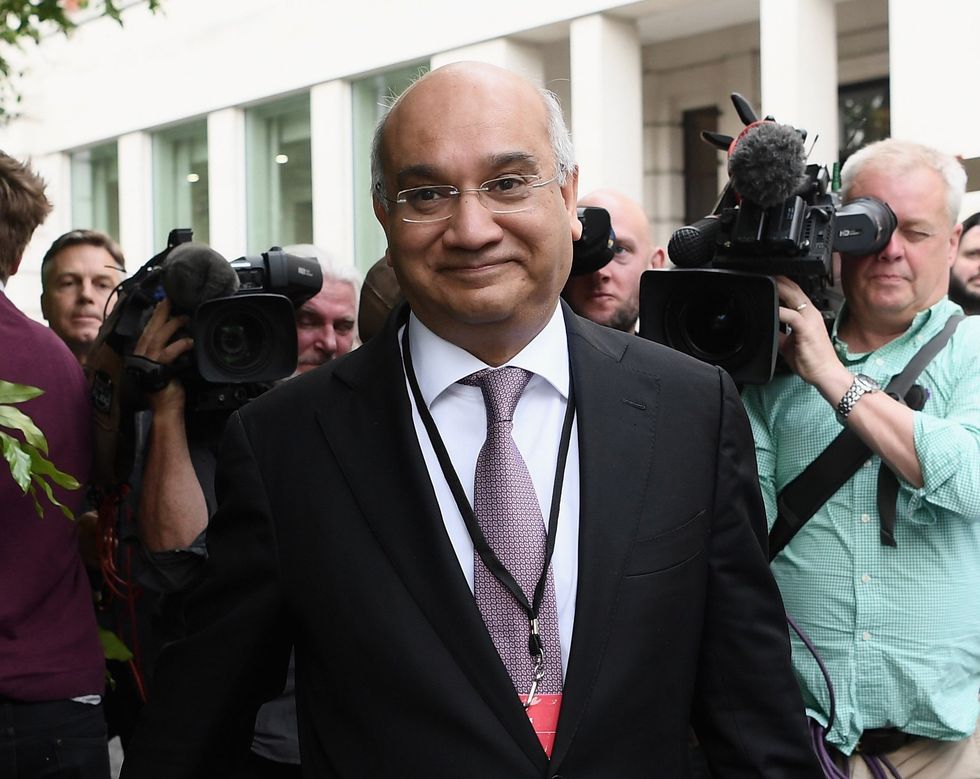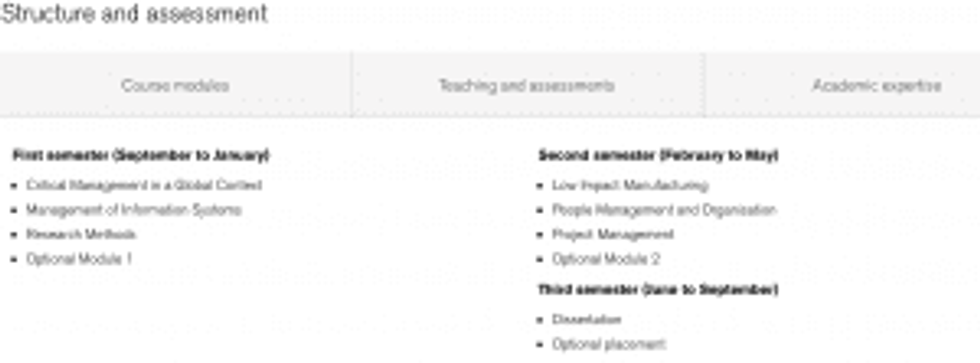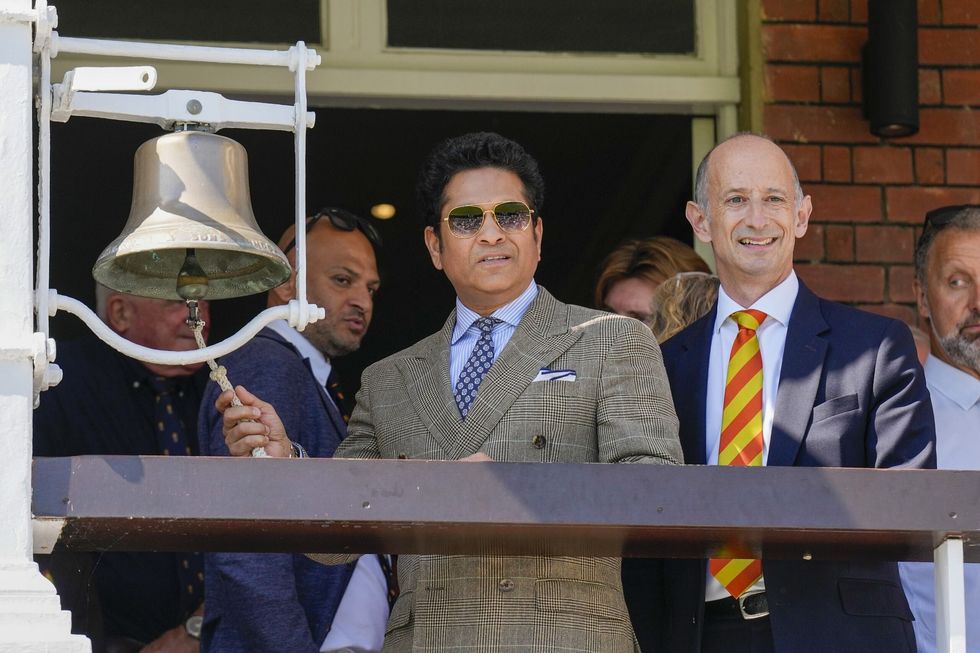Eastern Eye can reveal that the Indian High Commission has written to a UK university urging it to investigate claims of racism and discrimination made by students from its country.
It follows complaints from more than 80 learners from India at Leicester’s De Montfort University (DMU).
The High Commission sent the letter headed, “Alleged discrimination against Indian students”, to the vice chancellor, Professor Katie Normington, this week (18).
Its first education secretary, Nidhi Choudhary wrote, “Since the allegation is that students are being deprived of their master’s degree, it is of concern to the high commission.
“It is therefore requested that the university may consider taking appropriate action for the redressal of these students’ grievances.”
The diplomatic language hides the potential damage this could do to UK-India relations.
The students’ complaints comes on the week that India’s commerce and industry minister, Piyush Goyal, met his UK counterpart, Kemi Badenoch.
They discussed the progress of the free trade agreement (FTA) between the two countries.
The students want the universities regulator, Office for Students, to investigate their claims of racism.
Serious charge
This week, we have discovered that the former Leicester MP wants an inquiry into whether the university has broken competition and marketing rules – a serious charge.
This newspaper has seen letters and emails sent to senior leaders at the university which make clear the engineering students’ disquiet over how they were taught and questioning why so many learners from India botched one particular module.
“How can so many of us from India fail?” asked one engineering student.

Speaking on the condition of anonymity, scared about reprisals from the university, another told the newspaper, “It was in one module which the course pages said was optional, but by the time I arrived in the UK, it was compulsory.
“I was forced to take this module even though it has nothing to do with what I want to do when I graduate.
“Like many of us, my paper was marked by a PhD student who wasn’t an expert in my chosen field.
“Their highest qualification is a MSc [master’s of sciences], so how can they mark my work with any expertise?”
Eastern Eye was told that the module where the learners failed was Engineering Business Environment.
Failed Indians
Sources have said that 128 of the engineering students were Indians, making up 52 per cent of the entire pathway.
Of the 128, 89 or almost 70 per cent failed.
The failure rate varied from 18 and 85 per cent depending on the degree the students were undertaking.
For example, 63 of the 74 students (or 85 per cent) on the engineering management master’s pathway failed in their first attempt.
“When we started to speak to our classmates, we were shocked to learn that so many Indians failed,” said another DMU student.
“We learnt that this is not unusual and that it has been the case in previous years where students fail this module.
“But if so many of us failed, you would expect teachers to ask why so many were failing, and why so many Indians were failing.
“We are in no doubt it’s because we’re Indian, and it’s racism, simple.”
Eastern Eye does not know how many white students failed, but DMU is adamant that the failure is not down to racism.
The former Europe minister and ex-Leicester East MP, Keith Vaz, has taken up the fight for the students.
He is representing them through the Integration Foundation, which he chairs.
UK racism
In a letter earlier this month (1 July), Vaz wrote to Normington, “I am aware that a meeting took place between Professor Shushma Patel (pro vice chancellor) and four students on June 21, 2023.
“However, it has become evident that the university refuses to acknowledge a fundamental aspect concerning the alleged discrimination.
“During the meeting, Professor Patel stated that: ‘Since a majority of the students in the class are of Asian descent and some Indian students have successfully completed this module, there can be no discrimination.’
“It is important to recognise that this interpretation does not align with the legal definition of racism within UK law.”
The Indian students’ complaint hinges not only on the marks scored but in what some have described as “inconsistent feedback”.
“When we failed, we looked at the feedback,” said one, “so, we did everything to make sure we answered the missing points.
“However, when we got our marks for that attempt, some of us got even lower marks than before.
“How can that be right?”
The university told Eastern Eye that it “refuted” the allegations and took them seriously.
A spokeswoman said, “For the module in question – Engineering Business Environment - we have in place robust procedures for grading which include assessments by two internal markers and a subsequent review by an examiner external to the university, followed by a final moderation panel.
“In this instance, the process was no different and a total of 80 Indian students passed the module, while 58 failed.”
Student meeting
Eastern Eye has had an insight into how the university responded to the students’ concerns.
In one email seen by this newspaper, one lecturer wrote, “In general (i.e. not specific to this module) there are three reasons which can lead to a low average.
“First, a weak cohort.
“Secondly, issues to do with the teaching and thirdly, issues regarding the assessment.
“The latter two are our responsibility.
“The first, whilst possible, should not lea[d] to a statistically significant low average.
“As such we will be looking at the profile of marks and applying a significance test on the results both against expected and against the rmodules [sic].
“The issues described below would imply that we are likely to see a statistically significant difference, but this will provide the evidence.”
In at least one case, Eastern Eye has seen email evidence where a lecturer made an error in their marking, and the students ended up passing the assessment.
Speaking to this newspaper, Vaz said, “I want the vice chancellor to meet with the 75 students because if she sits in a room like I did with them, their presentation is something you could never dream of.
“They've got slides, they've got individual names.
“So, Professor Normington needs to sit down with all of them, not a representative sample and listen to their concerns about the modules.
“The second thing is, she needs to have a proper independent investigation that needs to be conducted by someone outside, not necessarily another academic, it could be anybody, The Runnymede Trust or Operation Black Vote, a quick short look at the facts.
“Let's hear views, and let's see what happens, because they've failed these people.
“They’ve taken £1.2 million from the students, they've got to leave the country, they’ve got to go back to India, and that can't be right.
“They cannot do post study work, that's it for them.”
He wrote to DMU’s VC this week (17) reinforcing that call.
Options
Eastern Eye understands from some students that they were not offered optional subjects even though the recruitment website promised these to them.
Some of the students affected have told Eastern Eye this was a breach of their contract with DMU.
Vaz has written to the Competition and Markets Authority (CMA, the body which has ‘cautioned’ UK universities in the past for breaching its rules on what they advertise to recruit students and what they actually deliver.
On July 1, in his second letter to the VC, Vaz wrote, “I would like to inform you that, at the request of the students, I have written to the chairman of the Competition and Markets Authority about this matter.”
“My understanding is that in the event the failure of the university properly to investigate, the students wish to make a collective complaint to the CMA.”
The students also complained that they did not get sufficient support from DMU, and that their mental health suffered.
“Even if we could re-sit, how can we put our mind to it?” asked one affected student. “We’re now in the middle of our dissertation and we don’t have the time to re-sit.
“We feel the university let us down.”
“Inclusion and fairness are core to our values as an institution”, a spokeswoman said, “and we are confident we have treated students fairly and supported them to achieve their potential, while ensuring that we adhere to the very highest academic standards.”
The former Leicester MP, Keith Vaz does not agree.
“Some of these people, their parents have scrimped and saved to get them the 15 grand, and then they have to pay for accommodation.
“They're not rich kids, they are people where families proudly say my child has gone to a university in England.
“This is what they all dream of and look what's happened.
“They just take their money and run, and I think that's a mistake.”
COMMENT
Proving racism is the reason why students have failed their module will be difficult, writes Barnie Choudhury.
I must declare an interest for the sake of openness and transparency.
I am a lecturer at the University of East Anglia, a fantastic place where I teach journalism to both UK and international students.
I hope I treat them fairly and show no biases – it would crush me if my students thought otherwise.
My colleagues are the same – we don’t stint in our efforts to support them.
Indeed, we put on extra classes, go through past papers, give feedback on draft submissions, hold tutorials so we can give both our international and UK students the chance pass.
We help them with their job applications and subsequent interviews.
I’ve been doing this since 1999, and I know I have written countless references, and I know I have picked up the phone, had coffee with someone in the industry, or sent an email, in the hope I can get a student into an interview room.
I’m pretty sure that’s the case at De Montfort, with lecturers going above and beyond what they’re paid to do.
Students will complain about their marks, and it is only right that we have procedures in place which ratify their scores.
In our case, we can ‘blind mark’, so we don’t know the student.
In broadcast journalism, that can be difficult because we know our students’ voices and their faces when they appear on radio or television.
But in a media law exam, for example, I don’t need to know someone’s identity.
To ensure we don’t have biases, we will ask a colleague to ‘second mark’ a sample.
Then we will discuss them and ‘moderate’ – giving students every chance to pass.
Finally, we will send a sample to an external examiner, someone from a different university whose role it is to make sure we’re getting our teaching right.
I’ve been an ‘external’ at several universities, and I see my role as a critical friend offering suggestions and best practice.
I make sure the marks are fair and consistent.
Investigations?
From what I’ve seen and the emails I’ve read, in DMU’s case, a pro vice chancellor, a senior leader, looked into the complaint.
She wrote to a student in June (12), “The faculty has received and investigated a number of items in relation to this module, thanks to students making contact via a range of methods.
“Our investigations to date demonstrate that the faculty continues to act in accordance with expected academic processes, ensuring that student submissions are marked by an appropriate academic or team of academics, and an appropriate sample (a proportion) of the assessments are reviewed by an internal moderator before provisional results are released to the students.”

Yet the Indian students I spoke to were adamant that the figures spoke for themselves.
Four-score Indian learners failed their first attempt, and when their papers were remarked, some scored lower marks.
There could be a reason which shows a flawed system.
As one lecturer put it in an email, “That the mark received depended upon the marker.
“In particular students followed the feedback, only to fail again due to a different marker.”
A different marker.
We’re humans and we think differently.
Keith Vaz and 83 students believe learners were discriminated against because of their race.
That is why they want someone independent, someone who is not linked to the university, to investigate their concerns.
DMU has ‘refuted’ these allegations.
But I take the meaning of ‘refute’ from the BBC style guide, where I was taught journalism and how to write.
“Use only to mean ‘disprove’. Do not say "Mr Harris refuted the allegation" unless you know unassailable proof was produced. Use deny, dismiss, reject etc.”
Unanswered questions
In my honestly held opinion, we have not reached “unassailable proof” threshold.
Why?
I have repeatedly emailed and spoken to DMU, but despite assurances, it didn’t answer the questions I put to it.
- How did so many students from one country fail? Did DMU consider the question of teaching standards? What investigation did DMU undertake to question why so many students from one country failed and why so many failed per se?
- The students said that feedback and marking were inconsistent. After they got feedback, some were marked down further. This raises the question - how is that possible? Well, the email I saw may have answered that – different markers. No one likes to be wrong, never mind admit it – that’s human nature.
- Is it true that the PhD student marked work for which they weren’t an expert, and if so, why was someone who didn't have the expertise allowed to mark?
- I have seen an email where a lecturer makes clear that they won't give feedback on work which hasn't been submitted. It raises the question of the job of a lecturer. Isn't it their job to advise and guide a student, especially one paying £16k for the privilege of learning from the best? While I was surprised by the lack of help given to this failed student, we must remember that this is a big cohort. Even so, why not share the workload?
- The students said they felt unsupported by the university. An email from a PVC said she was looking into the claims. It raises the question, to what extent did DMU investigate? Please provide proof. I didn’t get any proof from the university.
- In the 16 June letter from Keith Vaz, he asked DMU to investigate claims of racism and discrimination. What steps did you take to investigate these serious allegations? Do you think lessons need to be learnt? In this case, the steps don’t seem to be enough to warrant calling it an investigation.
- Please would you confirm that the module under question was optional at the time of marketing but was made compulsory and without warning? What optional modules could the students take in semester 1? If there were none, did you notify the CMA?
I also contacted the Office for Students and the CMA, and it is now for them to decide whether to investigate.
It is easy to be critical without knowing all the facts, but our role as journalists is to ask uncomfortable questions to arrive at answers, however unpalatable.
We have seen institutions, such as the police, such as cricket, such as the NHS, fail to acknowledge never mind investigate, gaslighting and blaming the whistle blower, complaints about racism.
Later, an independent, sometimes judge-led, inquiry often finds “processes, attitudes and behaviour which amount to discrimination through unwitting prejudice, ignorance, thoughtlessness and racial stereotyping”.
This mustn’t be another moment like that; DMU, and all universities, must investigate.








 (Photo credit: PTI)
(Photo credit: PTI)










 Kendrick Lamar and SZA commands the stage at Villa Park during his explosive opening setInstagram/
Kendrick Lamar and SZA commands the stage at Villa Park during his explosive opening setInstagram/
